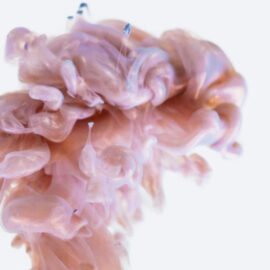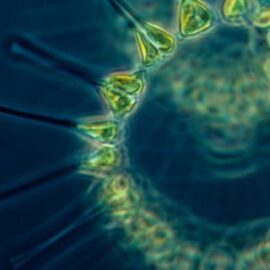

This article is an excerpt from the Shortform book guide to "Estrogeneration" by Anthony G. Jay. Shortform has the world's best summaries and analyses of books you should be reading.
Like this article? Sign up for a free trial here.
Are estrogenics hard to avoid? How does good gut health protect against estrogenics?
Estrogenics, a category of endocrine disruptors, have harmful effects on your health. However, according to Anthony G. Jay, there are ways to avoid estrogenics altogether.
Here’s how to avoid estrogenics so you can live a long, healthy life.
Tackling the Estrogenic Problem
According to Jay’s advice on how to avoid estrogenics, you can reduce your risk for estrogenic-caused health problems by making conscious decisions about the products you purchase and use in your everyday life. Managing your exposure to estrogenics might seem daunting given their pervasiveness, but Jay outlines some tips for changes you can make to your lifestyle to vastly reduce your risk.
Tip 1: Improve your gut health. Research shows that having a healthy gut full of good bacteria can reduce the effects of estrogenics on your body.
(Shortform note: In The Plant Paradox, Steven Gundry writes that you have a symbiotic relationship with about five pounds worth of microbes in, on, and around your body. These microbes (including bacteria, protozoa, fungi, molds, viruses, and worms) live and feed on you, and in return, they work to keep you in good health. Gundry says if you want to replenish the good bacteria in your gut, you must first conduct a cleanse to rid your gut of bad bacteria.)
Tip 2: Increase your omega-3 intake. Having a healthy omega-3 to omega-6 fatty acid ratio can also reduce the impact of estrogenics. Jay recommends you use fish oil or krill oil pills, and eat more seafood.
(Shortform note: In How Not to Die, Michael Greger echoes Jay’s recommendation to take omega-3 supplements, but he recommends using algae oil or yeast products instead of fish oil. He argues that fish oil can contain contaminants like PCBs, mercury, and other pollutants.)
Tip 3: Eat whole, unprocessed foods like fruits, nuts, vegetables, cheeses, and grass-fed meats. Jay explains that highly processed foods typically contain a higher content of phytoestrogens. Opt for naturally sourced and grass-fed foods when possible to avoid ingesting estrogenic chemicals that may have accumulated in the processing of farmed foods. You should also avoid phytoestrogens like soy, as well as foods packed in plastic packaging and cans (which are often lined with plastic inside), particularly with oils and fats.
(Shortform note: In In Defense of Food, Michael Pollan recommends you conduct the “great-grandma test” to ensure you’re eating whole, unprocessed foods: If your great-grandma wouldn’t call it real food, you should avoid it. There are various convenient, cost-effective ways to avoid chemicals in packaging and get more whole, unprocessed foods in your diet—including joining a community garden or subscribing to organic produce delivery boxes.)
Tip 4: Avoid mold exposure. Avoid eating grains, cheap coffee, and cheap chocolates, as these are common sources of ZEA contamination. Keep your living space as free from mold as possible.
(Shortform note: If you discover mold has grown on your food, the entire product doesn’t necessarily have to go to waste. For fermented vegetables, hard cheeses, hard meats, and firm vegetables, you can remove the portions with mold and salvage the unaffected areas. However, experts recommend you discard beverages, canned foods, and other food products that show signs of mold.)
Tip 5: Avoid estrogenic cosmetics and personal care products. Consider any product with fragrance to be estrogenic unless it’s labeled otherwise, and avoid cheap sunscreens.
(Shortform note: It can be hard to tell whether products with fragrances contain estrogenic ingredients because fragrances in cosmetics are considered “trade secrets.” This means that companies don’t have to list the chemicals they use to create them.)
Tip 6: Avoid heating plastics. If you can’t avoid plastics entirely, try not to heat food or liquids in plastics, as this causes more estrogenics to leach into them.
(Shortform note: Similarly, using plastics that have been scratched or damaged can also result in higher levels of estrogenics leaching out from them. Because of this, experts suggest you throw out any plastic products that are worn or discolored—as this indicates that the plastic is breaking down. To minimize wear and tear, avoid washing plastics in the dishwasher or with rough brushes, as this can scratch the plastic.)
Tip 7: Filter your water. Use a charcoal filter to remove harmful contaminants, even for water used for boiling or steaming food. This is because estrogenics can seep from the water and into the food.
(Shortform note: To choose the best water filter for your home, experts recommend you first find out what contaminants may be in your local water system. Then, compare filter types—such as activated carbon, reverse osmosis, and ion exchange—and choose one that best removes contaminants from your local water system and fits your budget and home. After purchasing a filter, keep it well-maintained to prevent bacteria growth.)
Tip 8: Sit in a hot sauna. A sauna can help rid your body of estrogenics. By raising your body temperature, saunas speed up your body’s expulsion of waste or toxic substances and move estrogenics out of fat cells at a faster pace.
(Shortform note: Saunas offer a host of benefits beyond ridding your body of toxins: They can improve your heart health and blood pressure, ease muscle soreness and joint pain, lower your risk for dementia and Alzheimer’s disease, reduce stress, heal certain skin conditions, enhance your sleep quality, and make you less susceptible to colds.)

———End of Preview———
Like what you just read? Read the rest of the world's best book summary and analysis of Anthony G. Jay's "Estrogeneration" at Shortform.
Here's what you'll find in our full Estrogeneration summary:
- How estrogenics are causing a rise in health problems
- How to avoid estrogenics and detoxify your body
- Why you shouldn't eat foods packed in plastic packaging or cans






